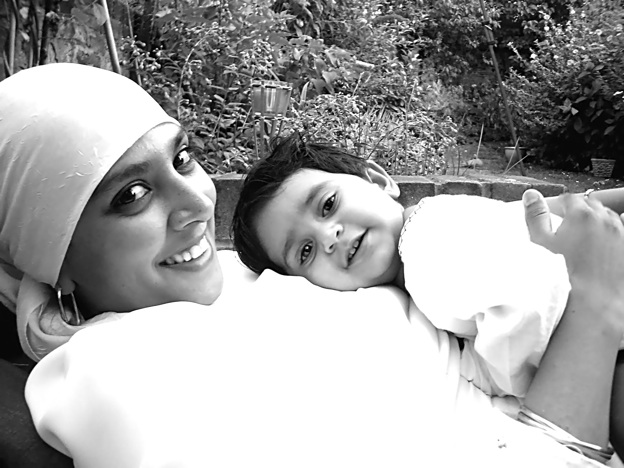SingaporeMotherhood | Baby & Toddler
October 2011
Breastfeeding Into Toddlerhood & Beyond

Most mothers initiate breastfeeding after their baby’s births; however the number of mother-baby pairs who continue breastfeeding tapers off as the babies get older.
Mothers nursing older babies often find that, among their child’s playmates of similar age, their babies are the only ones still breastfeeding. This is in spite of several paediatric healthcare organisations speaking out in support of breastfeeding past the ages of one, two or three.
Is there a case for breastfeeding into the toddler and early childhood years? And if you are doing this, what is the best response to those who object to your continued breastfeeding?
[banner][/banner]
Nutrition
You may wonder about the role of breastmilk in your baby’s diet, especially because many breastfed babies are leaner than their formula-fed counterparts. Breastmilk is specifically designed for the human baby. In addition, the composition of breastmilk is dynamic and varies according to your baby’s age, evolving to meet your baby’s unique nutritional needs at that point in time.
Past the one-year mark, breastmilk remains a source of
* vital nutrients such as fat and protein
* growth-promoting factors
* anti-inflammatory agents
* digestive enzymes
Breastmilk plays a remarkable role in a diet that includes healthy complementary food for a growing child.
For older babies who prefer to breastfeed instead of eating solid food, weaning is often advised, in the hopes that when given less breastmilk, the child’s food intake will increase. However, research evidence has not shown that breastfeeding children are more likely than weaned children to refuse food.
It is commonly thought that breastmilk for older babies tastes ‘bad’; this idea stems from the fact that the ingredients in toddler breastmilk are present in different ratios than in newborn or infant breastmilk. But remember that adults’ ideas about ‘good’ or ‘bad’ tastes are learnt, so that line of thinking does not apply to milk meant for babies or children.
Protection Against Illness & Allergy
Antibodies and immune protective agents are present in breastmilk throughout a mother’s lactation period; breastfed toddlers tend to fall sick less often, and recover more quickly than their non-breastfed peers.
Nursing toddlers have
* fewer ear infections
* fewer respiratory infections
* optimal digestion with fewer intestinal infections
* healthier hearts
* better protection against allergies
Breastmilk may form a smaller portion of a toddler’s diet than an infant’s because the toddler would be eating a greater variety and quantity of other food; the immune factors present in breastmilk become more concentrated in the second year onwards, providing for this.
The protection against illness continues after weaning into later childhood and adulthood. When the baby is breastfed for a longer time, protection is further enhanced.
A Breastfed Child-Too Dependent/Needy?
It is commonly believed that babies who are breastfed for an extended time become insecure or ‘velcroed’ to their mothers. All mothers of toddlers, breastfeeding or not, will say that their children become needy when uncomfortable in some way! This behaviour may also have more to do with a child’s individual temperament than how he is fed.
When a child’s needs for dependency are met, he is able to grow out of those needs and become more independent. Forcing a child into independence before he is ready causes him to form anxious attachments.
Trust that your breastfed baby will become independent in his time. Think interdependence, rather than independence.
Nursing provides a way for mothers to stay connected with their distractible, increasingly mobile youngsters. Through milestones and explorations of their world, the nursing relationship stays constant and predictable. In times of emotional upheaval, hurt, illness or the birth of a baby, nursing gives toddlers and preschoolers opportunities to feel safe, reach out for ‘mommy’ first-aid and find nurturing.
Cultural Biases
Most people feel uneasy about extended breastfeeding. These feelings arise from conflicting ideas about the role of breasts as sexual gratification versus nourishment.
Remember though, that society’s perception of extended breastfeeding does not change the simple truth that breastfeeding, complemented with other varied foods, is the biologically optimal way of growing little bodies and minds.
Criticised?
You may feel undermined or may have lost confidence in your choices because of negativity or insensitive comments about your baby’s continued nursing. How do you work through your immediate feelings and respond with objectivity?
• What are the intentions behind the words? Realising, for example, that the criticism arises from concern for your child, and does not relate to your capability as a mother, may allay some of your hurt.
• Consider who is questioning your nursing. If it is a stranger who is stepping out of their jurisdiction to comment on your parenting, ignore their indiscretion. If it is a family member or friend, you may need to establish that you intend to stay the course of extended breastfeeding. Boundaries are harder to establish in families.
• Work on self-perception. Although your feelings are very real, move away from your hurt/embarrassment/victim feelings and view yourself as an informed mother rather than as being vulnerable to critical attitudes.
• Reflect on why those particular remarks bother you. For instance, you may be told, “you’re continuing to breastfeed to keep your baby attached to you!” Could it be that you want to continue breastfeeding to maintain a close bond with your child? This is positive!
• Take on the role of educator, spreading awareness about the value in breastfeeding older nurslings. Research and equip yourself with information. This gives you objectivity.
• Many mothers have a respectful one-liner that they repeat when faced with criticism, giving them a focus when they feel criticised.
• Use humour/make light of the situation to diffuse emotions.
• If a more measured response is needed, consider expressing your hurt feelings and establishing boundaries, using “I feel…” rather than “you did…” statements.
Surround yourself with those who respect your breastfeeding choices. Facing criticism may help you become braver about doing what feels right to you as a mother.
Meeting Everyone’s Needs
When breastfeeding for years at a time, a whole-foods diet, exercise and nurturing your mind and spirit are essential to replenishing yourself. One of the first ways to cope with nursing-mother burnout is to take moments of alone time to find and re-define yourself as a woman and mother. Then you can nurture your child from a place of peace and completeness.
Breastfeeding isn’t an all-or-nothing situation. With older nurslings, breastmilk is not their sole source of nutrition, and many mothers are able to continue nursing by initiating changes to their babies’ nursing patterns.
You can set limits that accommodate yours and your baby’s needs. For example, you might want to nurse only at certain times (eg. at bedtime) or for certain lengths of time (eg. for as long as it takes to sing the alphabet). Proceed gradually with compassion, as you and your baby find a comfortable middle-ground.
Signs that you may need additional doses of self-care or need to set boundaries on your toddler/preschooler’s nursing:
* you feel like you have ‘no choice’
* you find yourself inwardly withdrawing from your child when he nurses
* you agree to nurse in an irritated voice
* you are agitated while breastfeeding
* you are frustrated enough that you want to wean abruptly
Affirming your personhood and defining your boundaries keep breastfeeding positive and may renew your motivation to keep nursing!
Anita Daubaras is a childbirth educator and breastfeeding counsellor. She is also mother to four children, all breastfed into toddlerhood.
All content from this article, including images, cannot be reproduced without credits or written permission from SingaporeMotherhood.
Follow us on Facebook, Instagram, and Telegram for the latest article and promotion updates.






